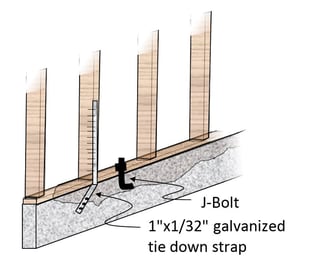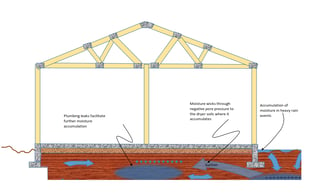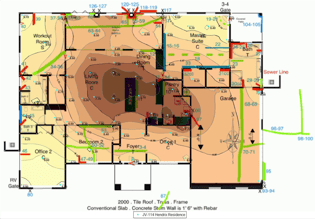Recently, I had the opportunity talk to Cliff Paul, co-founder of PK Associates Consulting Structural Engineers, and learn a bit more about him and his company!
Bob: Cliff, you have had a long-distinguished career in structural engineering… what first got you interested in becoming a structural engineer?
Cliff: In high school and college I worked construction and knew that I wanted to be a part of the building environment. I originally wanted to be an architect. My teachers suggested that I study architectural engineering, with an engineering major and architecture minor…. which I did, giving me a broader perspective than many engineers who only learn engineering. I could have stayed in school one more year and earned my architectural major, but I was anxious to get out and start my career.
Bob: you worked for some great companies and engineers early in your career. What convinced you to finally take the chance to go out on your own with your partner Jack Koehler?
Cliff: Early on I helped grow my employers company significantly and had dreams of becoming a partner. Jack and I were told that they would not consider making us a partner until we became a threat to them. So Jack and I set out to do just that. We started Paul Kohler from the ground up and built it to the success that it is today.
Bob: You have designed many impressive structures over the years. What is one that stands out to you as one of your most impressive achievements?
Cliff: One of my crowning achievements was the design of the Phoenix Convention Center rebuild. It was a unique design with many unusual challenges. One particular column had 13 million pounds to support. We had 8 weeks to deliver our first steel package, however, 3 days before it was due we discovered an error in our calculations. I sent everyone home on Saturday at 1 pm to come back Sunday to finish. I stayed and worked straight through for 36 hours and the PK Team delivered it on time.
Bob: Tell us about one of your most difficult problems to solve and how did you come through with the inspiration for the solution?
Cliff: I remember one particular project that needed to support a 2nd story with no seeming structural way to do it. I ended up designing a superstructure above the roof that supported the floor from above. I also remember designing a large Motorola Building in Mesa with a large basement and was later demolished to make way for an industrial warehouse project. I helped them put 2 more buildings on the project by utilizing the existing Motorola basement, that the owner was unaware of, as a storm retention vault.
Bob: Now toward the latter part of your career, you are focusing on Forensics. Why?
Cliff: After 43 years of experience, I have seen just about all the issues, right and wrong that could have been made on projects. I wanted to put that experience to use in helping troubleshoot hard to understand problems. Besides … it’s a lot of fun.
Bob: What are some of the most common mistakes that you see engineers make?
Cliff: Many engineers do a great job on the calcs but fall short on detailing. Also many rely on the computer calcs and struggle with engineering judgement.
Bob: What are some of the most common mistakes you see contractors make?
Cliff: Many contractors put new guys on the jobsite without adequate training, although with time and training that is improving. Its more of an industry shortage problem. The other common problem is the lack of proper reading of the specifications that become time wasters for designers to answer.
Bob: What problems do you see as the biggest challenge in the forensic repair industry?
Cliff: The biggest challenge is to find effective solutions to repair that are cost effective. Anything can be fixed….. the question is … does it make economic sense? Where life/safety in involved obviously the cost is almost irrelevant.
Bob: what is your opinion of non-engineers engaging in observations, analysis and recommendations for forensic work?
Cliff: I had no idea that non registrants are diagnosing and designing repairs to structural components. I think most engineers as I do would have a problem with this … especially if it is a life/safety issue.
Bob: would you ever go to a non performing structure, and on the spot observe, analyze, make recommendations, do drawings and specifications while on site? Why not?
Cliff: I actually did this twice. Both emergencies. Once a concrete floor with imminent collapse on a structure that could not be shut down. I sketched up the shoring plan and sealed on the spot and shoring was put in just hours later. The other was a tunnel in Palm Springs that required emergency repairs … again I designed emergency shoring and then had our drafters formalize my design. In anything other than an emergency, I don’t like doing it.
Bob: What advice do you have for aspiring engineers especially if they want to specialize in forensics?
Cliff: Get a well-rounded education. Study all aspects, of structural materials. This will aid in your ability and provide you a bigger picture of how structures and buildings should work and when they don’t.







